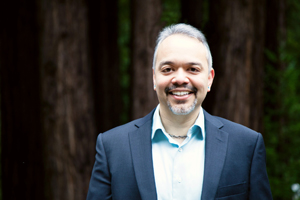How does the campus assure that graduating students have actually learned what faculty think they should have learned while at UC Santa Cruz?
The idea of learning outcomes assessment is grounded in a combination of quality assurance and self-improvement. Outcomes assessment is a national phenomenon, and UC campuses have taken an approach that is discipline-specific and faculty-owned. This approach is more appropriate for a research university, in contrast to the external benchmarks or standardized tests that are used in some other educational settings. The UC campuses communicate regularly on ideas and best practices, but each campus has its own implementation.
At a research university, faculty approach research by forming a research question, collecting evidence, and evaluating the findings. Learning outcomes assessment takes that same framework and applies it to teaching. Faculty start by defining the outcomes, which are the knowledge and skills that they expect their graduates to have obtained in each major. They then look at key assignments to collect evidence and evaluate that learning. This allows faculty to engage in evidence-based discussions that can result in innovative changes for improving student learning.
Making program learning outcomes publicly available can be helpful for students. As students choose a major, they can see how their future degree can equip them with skills valuable on the job market and in their community. Outcomes provide a high-level roadmap for each major that is useful for all students—and can be particularly helpful for first-generation and transfer students.
The campus goal is to build assessment into the teaching culture, ideally as collaborations of multiple faculty across several courses. Faculty already do course-level assessment in the grading of assignments, papers, projects, and exams. Program-level assessment provides a more holistic view of student learning.
Assessment is most useful as an ongoing process. Thus each program is asked to create an annual report each year, and these are made available to the Academic Senate Committee on Educational Policy, Graduate Council, and the deans. This work also helps us prepare for our accreditation review in 2015.
Outcomes assessment can be done alongside grading of existing assignments, so that it does not take much additional effort. Undergraduate program assessment is done in only a few senior-level courses each year and may involve a moderately sized sample of students in a large major. Graduate program assessment may look at PhD defenses and masters capstones. Faculty can use rubrics to streamline the effort, improve consistency across evaluators, and collect information to guide improvements.
The campus has been building support of faculty assessment efforts. Guidelines and resources are available online. The campus assessment expert, Anna Sher, is available to help faculty with all aspects of the process.
Program learning outcomes are being posted on each program website, and the campus has compiled links to most programs. Undergraduate outcomes are being added to the catalog to make it easier for students to find them.
I appreciate the effort our faculty have and continue to put in to make assessment successful and useful, to the benefit of our students.



